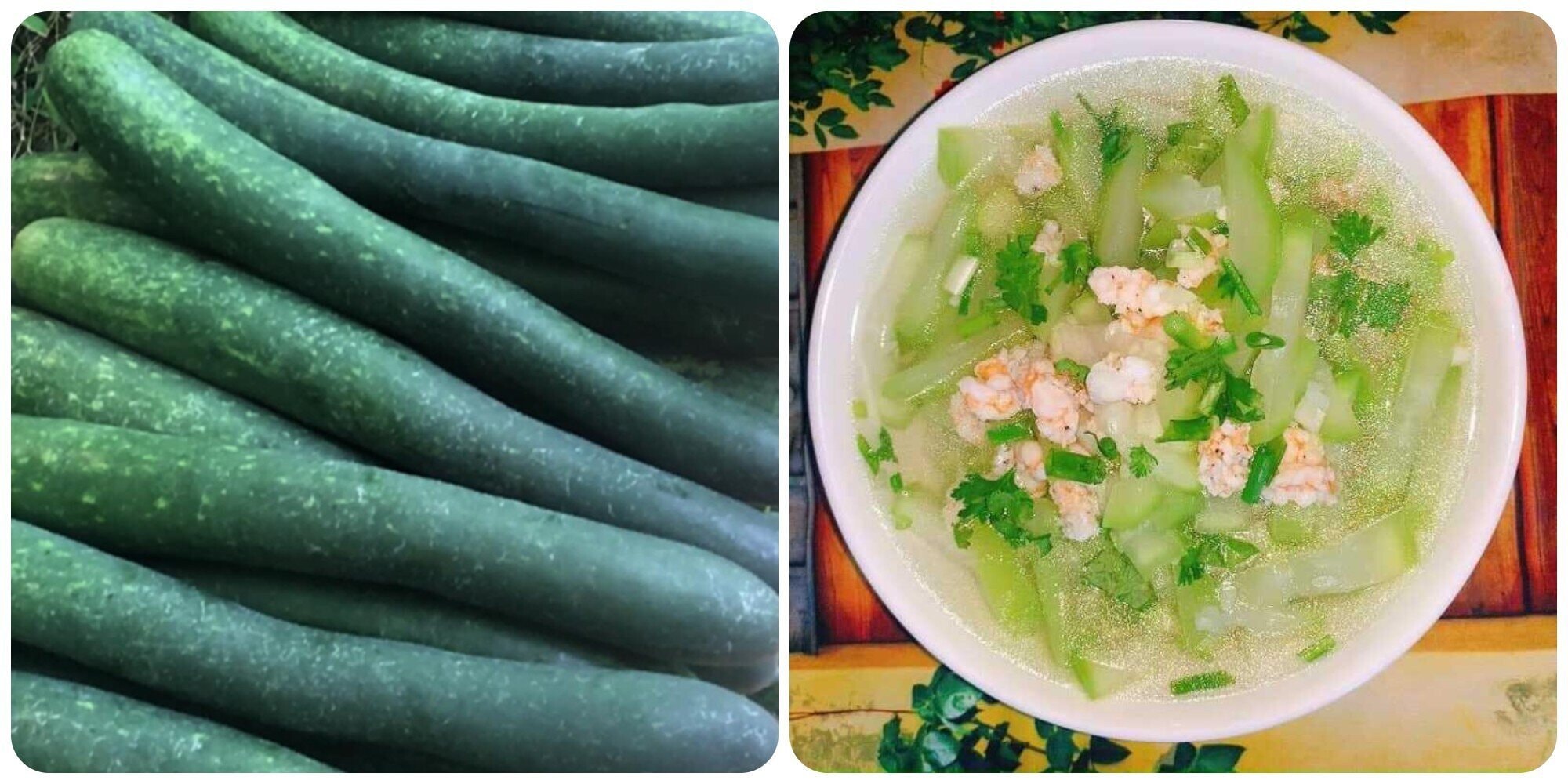Who should not eat zucchini?
Pumpkin is a familiar vegetable on Vietnamese dinner tables, however not everyone can eat pumpkin.
Green squash is rich in nutrients and is a common food in the daily meals of Vietnamese people. An article by Dr. Pho Duc Thuan in the Health & Life Newspaper said that the peel contains many vitamins and minerals, and it is best to harvest the fruit when it is still young, around the 30th day. According to Oriental medicine, green squash is cool, sweet, and non-toxic.
Green squash has the effect of clearing heat and detoxifying, strengthening the immune system, benefiting qi and eliminating vexation, quenching thirst, and promoting urination and reducing swelling. Green squash is present in many dishes to prevent and cure all diseases.
Health benefits of squash
Below are the health benefits of squash:
Reduce the risk of being overweight and obese
The squash itself is high in energy and water but has no fat. Therefore, eating squash will make you feel full for a long time without having to worry about the amount of calories you consume.
Another thing worth mentioning is that the flesh of this fruit is in the form of fiber which is very good for the intestines and digestive system, reducing excess fat accumulated in the body and preventing the conversion of excess sugar into fat when entering the body. Therefore, eating squash is very good for keeping fit and losing weight.
Cooling and detoxifying
Because of its sweet taste and cooling properties, squash can clear heat, be diuretic, detoxify, etc. Drinking squash tea regularly can help detoxify the liver, especially for people with fatty liver.
Enhance eyesight
The vitamin B2 content of squash is relatively high, so using this food will reduce the risk of eye disorders and reduce oxidative stress of the retina. Not only that, squash also reduces the risk of macular degeneration.
Improve immunity
With the ability to provide up to 19% of the vitamin C that the body needs daily, squash helps stimulate the production of white blood cells, inhibit the activity of free radicals and prevent the mutation of healthy cells. These things help strengthen the immune system to be better every day.
Protect cardiovascular health
Vitamin B2 and C in squash are very good for the heart. Regularly eating squash helps dilate blood vessels, reducing stress on blood vessels. Not only that, squash also prevents the risk of angina and stroke.

Who should not eat squash?
Pumpkin is considered a golden food for health. Although it brings many benefits, not everyone can eat pumpkin.
The article on the Medlatec General Hospital website has medical consultation with BSCKI. Duong Ngoc Van said that people with stomach problems or cold body should eat less squash. In addition, women who have just given birth and children with weak digestive systems should limit their intake of squash in the winter to avoid indigestion.
In addition, when eating squash you also need to note the following:
- Do not drink raw squash juice because this fruit is highly soapy and can easily cause digestive problems.
- Do not eat squash with vinegar or red beans to avoid eliminating the nutrients of the squash, causing a sudden increase in urine leading to dehydration.
The information shared above hopefully has helped you better understand the benefits and who should limit eating squash. Besides this food, you should also add other green vegetables to ensure your body is provided with the most complete nutrients.


